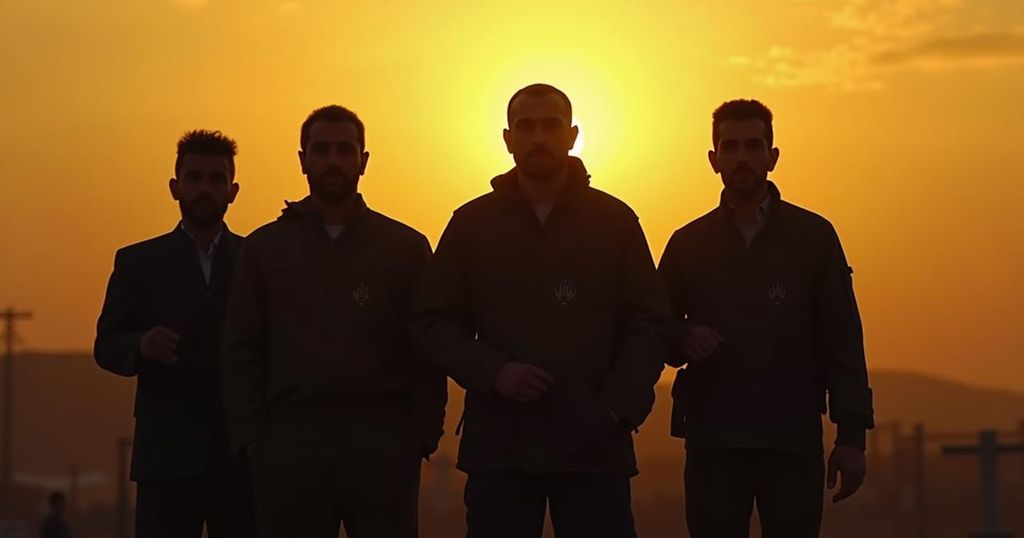Escalation in Conflict: The Assassination of Hezbollah Leaders
In a crucial week, Israeli airstrikes in Lebanon resulted in the deaths of seven high-ranking Hezbollah officials, including leader Hassan Nasrallah. This escalation follows Hezbollah’s support for Hamas against Israel, triggering notable military responses from Israel that could alter the power dynamics within Hezbollah. The ramifications of such losses challenge the organization as it seeks to reorganize its leadership and strategy.
In a devastating week marked by intensified Israeli airstrikes in Lebanon, seven high-ranking members of the Hezbollah militant organization were killed, including the group’s influential leader, Hassan Nasrallah. This unexpected escalation reverberated across Lebanon and the broader Middle East, with Israeli officials expressing satisfaction over their military and intelligence accomplishments. The strikes came shortly after Hezbollah declared its intention to support its ally Hamas in the Gaza Strip, a day following Hamas’s sudden assault on southern Israel. The loss of these key Hezbollah figures, most of whom were deeply embedded in the organization since its inception in the early 1980s, represents a significant blow to the group. Among the deceased, Hassan Nasrallah played a critical role in shaping Hezbollah into a formidable entity in Lebanese politics and military affairs. He led the organization through several conflicts with Israel, and steered its efforts during regional upheavals, including the Syrian civil war. In addition to Nasrallah, prominent figures included Nabil Kaouk, the deputy head of Hezbollah’s Central Council, and Ibrahim Akil, who commanded the influential Radwan Forces and had long been on the U.S. wanted list for his involvement in attacks against American interests in Lebanon. Other senior members, such as Ahmad Wehbe and Ali Karaki, also fell victim to these strikes, exacerbating the leadership crisis within Hezbollah. The implications of these assassinations stretch beyond military losses; they could potentially alter the power dynamics within Hezbollah and its operational strategies against Israel. Following Nasrallah’s demise, Naim Kassem has emerged as the group’s most senior surviving leader. He has been a part of Hezbollah’s hierarchy for decades and remains involved in critical decision-making processes. Meanwhile, Hashim Safieddine, who holds the position of head of the central council, is seen by many analysts as a likely successor to Nasrallah. With these significant losses, Hezbollah now faces the daunting task of recovering and reorganizing while navigating an increasingly hostile environment.
Hezbollah, a significant militant group and political entity in Lebanon, established itself in the early 1980s amid the Lebanese Civil War and the Israeli occupation. Over the decades, it has grown into a powerful military force, directly influencing Lebanon’s political landscape and engaging in regional conflicts such as the Syrian civil war. Recently, with tensions escalating between Hezbollah and Israel, particularly after the violence in Gaza, the group opened a front in support of Hamas. This action provoked Israel’s retaliatory measures, culminating in airstrikes that have led to the assassination of several of its top commanders, fundamentally altering the structure and future of Hezbollah. The death of such an influential leader as Hassan Nasrallah raises questions about the future direction of the organization.
The recent Israeli airstrikes resulting in the assassination of seven high-ranking Hezbollah officials, including the prominent leader Hassan Nasrallah, mark a significant escalation in the ongoing conflict between Israel and Hezbollah. This event not only disrupts Hezbollah’s leadership and operational capabilities but also poses serious implications for the organization’s future strategies and political presence within Lebanon. As Hezbollah grapples with these losses, the potential emergence of new leaders such as Naim Kassem and Hashim Safieddine may reshape its trajectory in the years to come.
Original Source: www.manilatimes.net




Post Comment